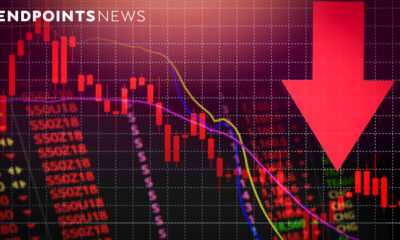Health
Post-9/11 Veterans Face Rising Anxiety and Depression During Pandemic

A recent study conducted by researchers at Penn State University reveals a significant increase in symptoms of anxiety and depression among post-9/11 veterans during and after the COVID-19 pandemic. This increase highlights ongoing disparities associated with race, ethnicity, and gender within this demographic.
The research indicates that the mental health challenges faced by veterans have intensified in the wake of the pandemic. Data collected over this period shows that not only did anxiety and depression rates rise, but the impact varied considerably based on demographic factors.
Study Findings and Implications
The study’s findings are alarming, revealing that nearly 30% of post-9/11 veterans reported experiencing heightened anxiety during the pandemic, while approximately 25% indicated an increase in depressive symptoms. These figures represent a marked rise compared to pre-pandemic levels.
Moreover, the research underscores significant disparities among different groups. For instance, veterans from minority backgrounds reported higher rates of both anxiety and depression. The study found that Black and Hispanic veterans were particularly affected, experiencing mental health challenges at rates exceeding their white counterparts.
Gender also played a crucial role in these findings. Female veterans reported a greater prevalence of anxiety and depression compared to male veterans. This disparity suggests that the unique experiences and challenges faced by women in the military may contribute to their mental health struggles, particularly during stressful periods like the pandemic.
Understanding the Context
The COVID-19 pandemic has been a period of unprecedented stress for many individuals, but veterans often face additional challenges. Many veterans already grapple with the psychological impacts of military service, which can be exacerbated by the isolation and uncertainty brought on by the pandemic.
According to the study, the mental health resources available to veterans have also been strained during this time. The demand for support services surged as more veterans sought help, but many faced barriers to access, including long wait times and limited availability of mental health professionals.
The implications of these findings are significant, as they call for a renewed focus on mental health support for veterans. Policymakers and organizations that serve veterans are urged to address these disparities and ensure that all veterans receive the help they need.
In conclusion, the study conducted by Penn State University reveals a troubling trend in the mental health of post-9/11 veterans during the COVID-19 pandemic. With rising levels of anxiety and depression, particularly among specific demographic groups, the need for targeted mental health resources has never been more urgent. Addressing these disparities is crucial for improving the overall well-being of veterans as they navigate the ongoing impacts of the pandemic.
-

 Technology4 months ago
Technology4 months agoDiscover the Top 10 Calorie Counting Apps of 2025
-

 Health2 months ago
Health2 months agoBella Hadid Shares Health Update After Treatment for Lyme Disease
-

 Health3 months ago
Health3 months agoErin Bates Shares Recovery Update Following Sepsis Complications
-

 Technology3 weeks ago
Technology3 weeks agoDiscover 2025’s Top GPUs for Exceptional 4K Gaming Performance
-

 Technology4 months ago
Technology4 months agoDiscover How to Reverse Image Search Using ChatGPT Effortlessly
-

 Technology2 months ago
Technology2 months agoElectric Moto Influencer Surronster Arrested in Tijuana
-

 Technology4 months ago
Technology4 months agoMeta Initiates $60B AI Data Center Expansion, Starting in Ohio
-

 Technology4 months ago
Technology4 months agoRecovering a Suspended TikTok Account: A Step-by-Step Guide
-

 Health4 months ago
Health4 months agoTested: Rab Firewall Mountain Jacket Survives Harsh Conditions
-

 Lifestyle4 months ago
Lifestyle4 months agoBelton Family Reunites After Daughter Survives Hill Country Floods
-

 Technology3 months ago
Technology3 months agoUncovering the Top Five Most Challenging Motorcycles to Ride
-

 Technology4 weeks ago
Technology4 weeks agoDiscover the Best Wireless Earbuds for Every Lifestyle





















